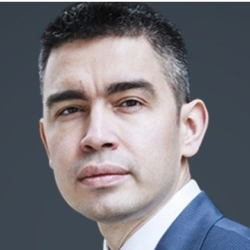Marcel Salikhov, President of the Institute for Energy and Finance, took part in the program “Prav!DA” on the OTR TV channel, dedicated to the issues of Russian regions gasification.
How to ensure the possibility of free connection to gas networks for the population? What prevents gasification of Russia in general? These and other issues were discussed during the program, which was also attended by the Director of the Energy Development Fund Sergei Pikin, Chairman of the State Duma Committee on Energy, Head of the Russian Gas Society Pavel Zavalny and Leading Analyst of the National Energy Security Fund Igor Yushkov.
Varvara Makarevich (correspondent): What are the options?“Honestly, when the word 'free' sounds, it immediately raises certain concerns, because nothing is free in the long run. Someone always pays for it. If the consumer does not pay, then it is necessary to clearly understand who pays for it and on what terms. And now this issue has not yet been resolved,” Marsel Salikhov said.
Varvara Makarevich: Could there be an option that in the end the consumer still pays, only due to the fact, that he then has a tariff of big size, and he covers this free eyeliner, which was originally?Marcel Salikhov: Various options are being discussed. One of the options is the issuance of special bonds from Gazprom. Gazprom raises funds in the market, it can attract at low rates. For example, if a simple consumer takes a loan from a bank, he will pay, 10%, and Gazprom can take it at 5%. This, accordingly, generally creates some kind of benefit.
Another option discussed, is provision of a certain preference for MET for gas. Accordingly, Gazprom receives certain tax preferences. These resources are spent, in fact, on gasification, on all these expenses. And this issue has not been resolved.
Marcel Salikhov: Well, it is quite possible that this is beneficial for the consumer. The issue, of course, should always be discussed in specific, some quantitative terms. Because it is quite possible, for example, that it is profitable for the consumer to pay 20% more than the tariff and, accordingly, to stretch the entire payment ... such an installment plan is obtained. If this is done centrally and on favorable terms, why not? This is a normal mechanism perfectly working.

Subscribe for updates
and be the first to know about new publications